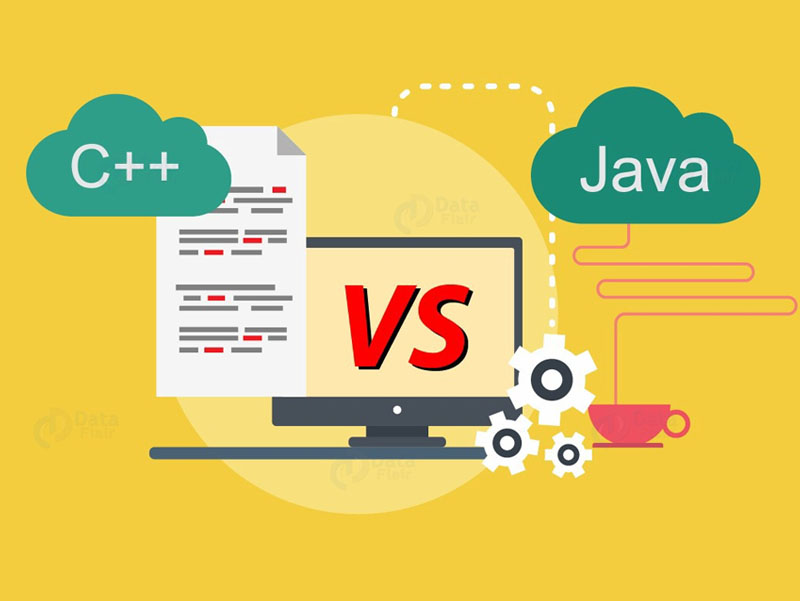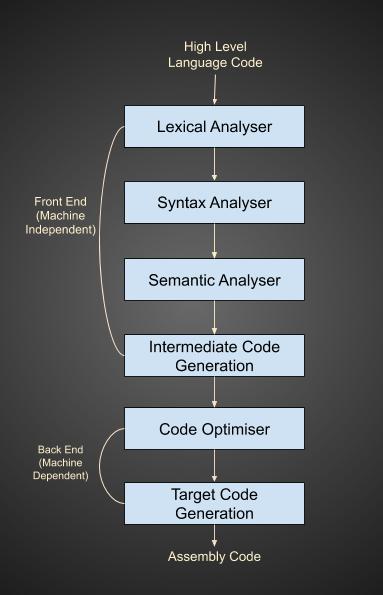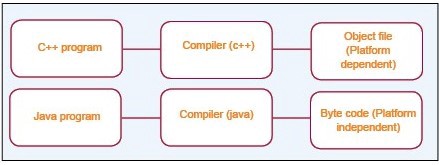
Why Java is platform-independent but not C++?
July 7, 2024 | TickMark
Both Java and C++ are efficient programming languages that use object-oriented programming(OOPs) paradigm. Java follows OOPs more than C++. Both support OOPs features like:
-
Classes
-
Objects
-
Polymorphism
-
Encapsulation
-
Abstraction
-
Abstraction
In this article, we are going to discuss the platform independence of Java and why C++ is not supporting platform independency.
We have heard that java is developed to eliminate the various
drawbacks of C, C++. Although Java has mostly inherited its syntax
from C++ and some major features as well. Java is preferred in
almost all major organizations because it supports “code once,
runs anywhere” made it platform-independent and easy to use and
upgrade.
Before knowing why java is platform independent let’s have some brief about compiler phases:

Lexical Analyser:
Accepts high-level language code and tokenize the input to a valid set of tokens.
Syntax Analyser:
It checks the syntactical structure of the given input, i.e. whether the given input is in the correct syntax.
Semantic Analyser:
Interpret symbols, their types, and their relations with each other.
Intermediate Code Generation:
In the analysis-synthesis model of a compiler, the front end of a compiler translates a source program into an independent intermediate code.
Code Optimizer:
It transforms the code and tries to improve the code by making it consume fewer resources (i.e. CPU, Memory) and deliver high speed.
Target Code Generation:
Use the optimized intermediate code and generates target code or machine code on which machine can operate easily.
A Java program whenever compiled, the compiler only generates the intermediate code called bytecode and on runtime, it generates machine code. Hence Java program has lesser compile-time and has higher runtime. Let’s have some elaboration on this:
-
High-level language code (i.e.: java code) goes to java compiler.
-
Java compiler follows the lexical analyzer phase, syntax analyzer phase, semantic analyzer phase and then goes the intermediate code generation phase.
-
On Intermediate code generation, phase Java compiler creates intermediate code i.e. bytecode
-
Bytecode is the machine-independent code ready to run on any environment or platform. This is responsible for java portability.
-
We can run Java bytecode on any machine having JDK installed and running, JVM takes up the bytecode and runs it on the machine.
-
We pass bytecode and run the java program. JDK first converts bytecode to machine code than it runs that code on that machine.
On the contrary, the C++ compiler takes the code, follow all the compiler phases and directly generates the machine code ready to run on a machine. Hence:
-
C++ has higher compile-time and
-
Lesser Runtime
Where do we use Java or C++:
Java:
-
Where you are integrating your application software to multiple platforms use java.
-
Use java where you have a large codebase to handle.
-
Where you have a great extension plan for your application software.
C++:
-
Where you need to interact with memory very often.
-
You need to create the OS for your organization.










